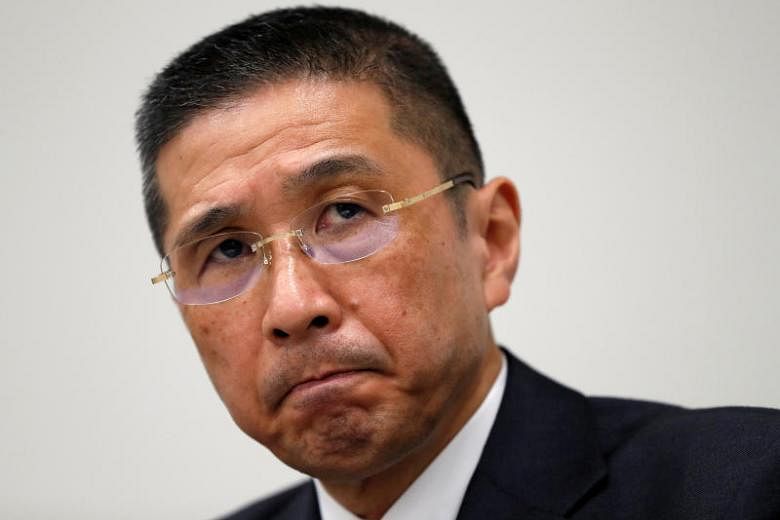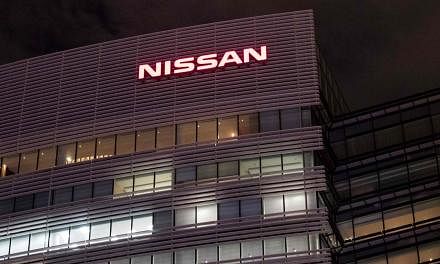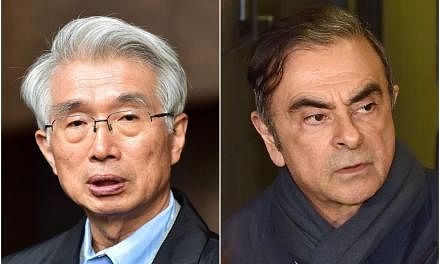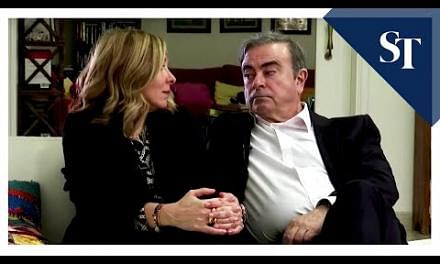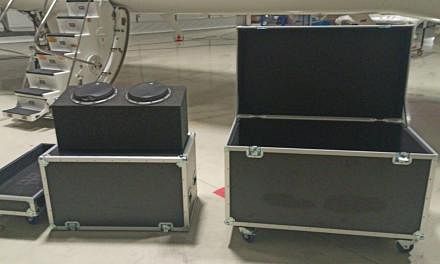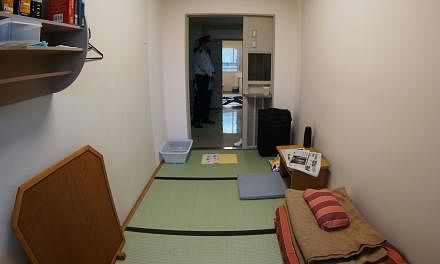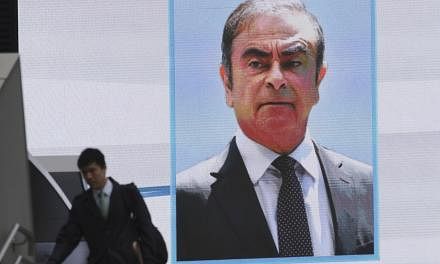TOKYO - Nissan chief executive Hiroto Saikawa hinted on Monday (Nov 26) that he will seek a rebalance of power with French automaker Renault, as the board of Mitsubishi Motors, the third partner in the automotive alliance, met to sack its disgraced chairman Carlos Ghosn.
Mr Ghosn, who was nabbed on suspicions of financial misconduct on the tarmac of Tokyo's Haneda Airport on Nov 19, is being held at the Tokyo Detention House, reportedly in a cell measuring no larger than five sq m.
Prosecutors have until Dec 12 to press charges though, under Japanese law, they could "re-arrest" Mr Ghosn on a separate offence. This will reset the 23-day clock that an accused can be detained by law.
The 64-year-old was on Monday unanimously removed as Mitsubishi chairman and representative director, the company said in a filing, because "he has lost the confidence of Nissan and it is considered difficult for (him) to continue conducting his activities".
Chief executive Osamu Masuko was named interim chairman, while Mr Ghosn retains his seat on the board until at least the next shareholders' meeting.
"Keeping Ghosn on as our chairman will present a reputational risk to our company," Mr Masuko told reporters after the board meeting. "We had to make a decision that prioritises protecting the company, our employees and their families."
But he stressed that the tripartite alliance was "not heading towards confrontation", as speculation grew abroad that Mr Ghosn's removal was orchestrated as a palace coup within Nissan, which only has a 15 per cent non-voting stake in Renault despite outselling the French automaker and helping it make inroads into such important markets as the US and China.
Conversely, Renault owns a 43.4 per cent stake in Nissan, which gives it voting rights. Nissan, meanwhile, has a 34 per cent stake in Mitsubishi Motors, which came on board the alliance in 2016 after Mr Ghosn steered the company through a cheating scandal involving fuel data.
While Mr Saikawa told a closed-door townhall meeting at Nissan's Yokohama headquarters - beamed to offices worldwide - that the alliance "would continue", he also said that he would "talk directly (with Renault) in the future", the Nikkei daily reported.
The three carmakers are due to meet in Amsterdam this week.
The Japanese and French economy ministers have sought to quell concerns of a corporate slugfest even as observers note the growing chasm between the bedfellows brought together by Mr Ghosn.
French economy minister Bruno Le Maire said on Sunday that he wanted the alliance to be kept as it is, without any change to the rules of governance. Japanese counterpart Hiroshige Seko, meanwhile, has also talked up the "winning" alliance and said it was "extremely important to maintain stable alliance relations".
Mr Ghosn has denied the allegation that he had wilfully understated his income by about half the 10 billion yen ($121.21m) he had earned over five years through March 2015, public broadcaster NHK said. Japanese prosecutors, who have a conviction rate of over 99 per cent, have said that the charge will carry a maximum jail term of 10 years.
A drip-feed of revelations, meanwhile, has continued as anonymous sources leak to Japanese media sordid details of the alleged wrongdoings of Mr Ghosn, who single-handedly rescued Nissan and Mitsubishi from oblivion.
The Asahi newspaper said that Mr Ghosn had understated his income by another 3 billion yen over three years ending March this year.
The Yomiuri also reported that Nissan had been paying Mr Ghosn's elder sister US$100,000 a year since 2002 for a non-existent advisory role, while the Mainichi Shimbun said that he used corporate funds to make a donation to his daughter's university.
He has also been accused of using company money to purchase homes in Rio de Janeiro, Beirut, Paris and Amsterdam, which had no ostensible business purpose.
Mr Nicholas Benes, a representative director of The Board Director Training Institute of Japan, told The Straits Times: "You can't help but wonder if this is partly fuelled by resentment and jealousy that has been brewing in Nissan ranks for some time."
Former public prosecutor Nobuo Gohara, now a lawyer at Gohara Compliance and Law Office in Tokyo, told a press briefing on Monday that he thinks it possible that Mr Ghosn's ouster had been orchestrated by taking advantage of the new plea bargain system that came into force in June.
"Unlike other countries, Japan's plea bargaining system was set up such that it will incriminate other people and less so, oneself," he said. "And given the high conviction rate, the principle of being innocent until being proven guilty does not apply in Japan."
Mr Ghosn was apparently turned in by a whistleblower.
